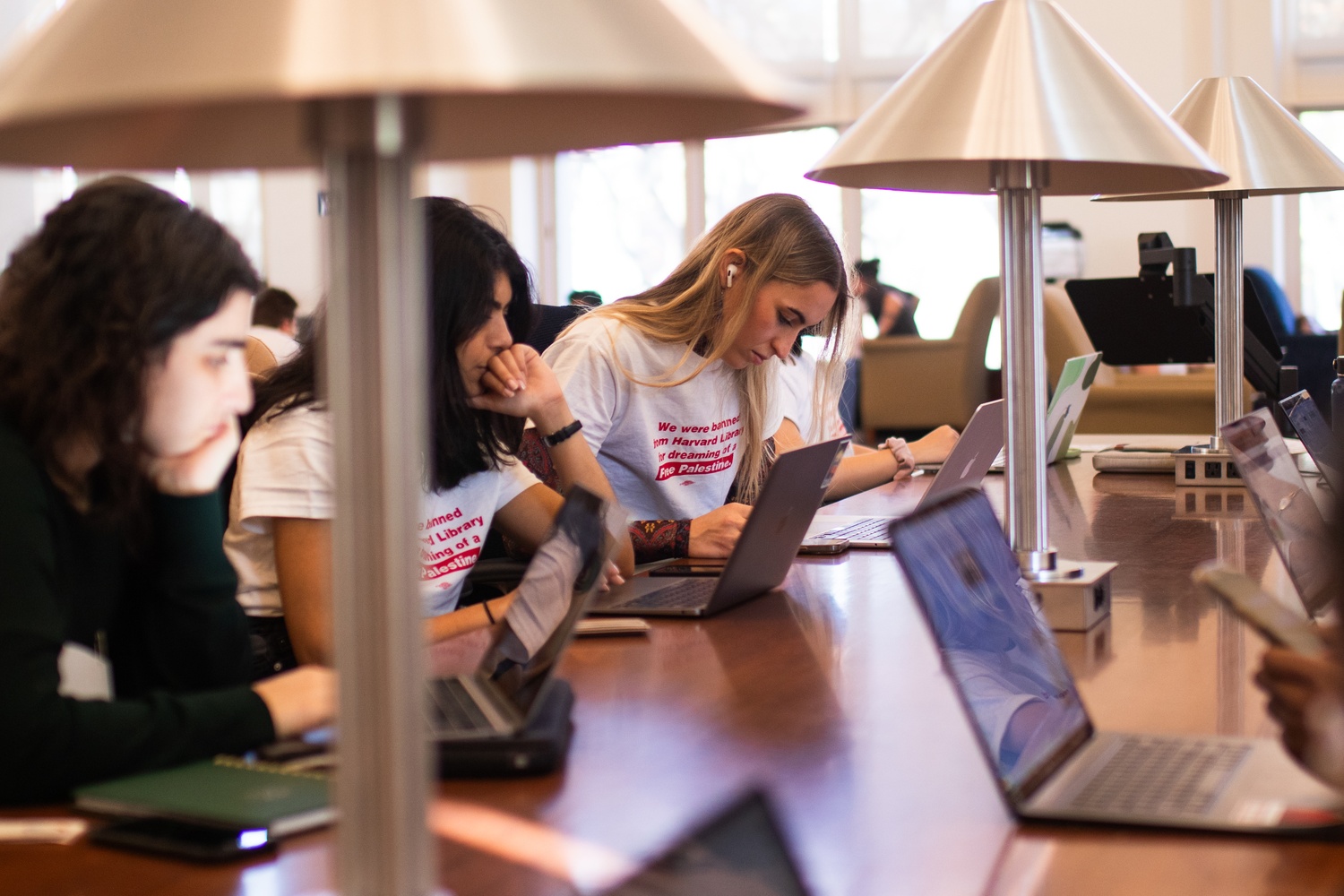
News
Summers Will Not Finish Semester of Teaching as Harvard Investigates Epstein Ties

News
Harvard College Students Report Favoring Divestment from Israel in HUA Survey

News
‘He Should Resign’: Harvard Undergrads Take Hard Line Against Summers Over Epstein Scandal

News
Harvard To Launch New Investigation Into Epstein’s Ties to Summers, Other University Affiliates

News
Harvard Students To Vote on Divestment From Israel in Inaugural HUA Election Survey
In Disciplining Study-in Participants, Harvard Has Forgotten Its Values
By punishing students participating in this semester’s “study-in” protests, Harvard has compromised its core academic mission.
Harvard purports to strive for fairness and respect for our diverse academic community. But the University’s selective application of its new rules about demonstrations, particularly in the case of this semester’s study-ins, signal that Harvard has bent the knee to outside forces. When enforcement of policy strays from its guiding purpose of fostering a safe and nurturing learning environment, the University should instead err on the side of benevolent negligence.
The silent study-ins, which sought to draw attention to the conflict in Gaza, adhered to a high standard of respect for the solemnity of the library. Still, Harvard chose to enforce its rules against “demonstrations,” temporarily banning more than 70 students and dozens of faculty from libraries across campus.
To be sure, rules and norms are meant to maintain order in shared spaces. A library, by its nature, demands quiet respect. But enforcing these rules should take more than the bare letter of the law into account.
A better approach would embrace the principle of radical empathy, seeking to understand and appreciate the motivations of those who might technically violate a rule but do so in a way that aligns with that rule’s underlying values. In the case of the study-in protesters, their actions aligned with rules governing general library use — silently reading is perhaps the quintessential library function.
In response to the study-ins, Harvard administrators conducted ID checks and disciplined students and faculty alike for silent, non-disruptive protest. If anything, it was not the protesters but University administration that ultimately created the greatest disturbance in our libraries.
A reaction like a statement reaffirming the importance of a quiet library while acknowledging the non-disruptive nature of the protest would have better harmonized Harvard’s goals of fostering an inclusive educational community and allowing students to respectfully express their beliefs. This kind of approach would have emphasized the spirit of the rule — permitting dialogue while recognizing that certain spaces require expressive restraint — rather than relying solely on punitive measures to do so.
Harvard’s fixation on punishment extends beyond a single incident. Barring unapproved signage, banning chalking, and prohibiting amplified noise without prior approval all point toward a University more interested in regulation than dialogue.
This focus on enforcement risks alienating its own academic community by prioritizing external perceptions — whether that be congressional investigations, donor pressure, or other outside actors — over internal integrity. Decisions that appear to cater to external audiences undermine the trust students and faculty place in the institution to foster open, challenging, and authentic discourse.
Instead of rigidly adhering to its rulebook, Harvard should focus on creating structured opportunities for dialogue around divisive issues. By ensuring such conversations remain central to its mission, the University can model the kind of intellectual growth and respect it aims to teach.
Harvard’s prosecutorial response to the student and faculty study-ins reflects its priorities as an institution. Moving forward, will it focus on enforcing rules in ways that earn external approval? Or will it embrace its responsibility to cultivate a community where intellectual exploration thrives?
In exacting punishments — or choosing not to — Harvard must balance enforcement with empathy, discretion with understanding, and order with the values that underpin Harvard’s educational mission. In doing so, Harvard can reaffirm its role as a place where students and faculty learn not only from each other but also from the challenges and complexities of our world.
Charles R. Nesson ’60 is the William F. Weld Professor of Law at Harvard Law School.
Want to keep up with breaking news? Subscribe to our email newsletter.

